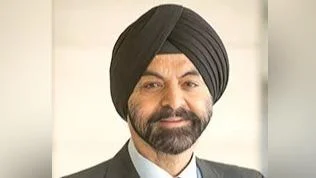Fourteen-year-old Daniel Athill Jona from Antigua and Barbuda was declared the second-place winner in his age group in the 2023 global competition for sustainable car design. His entry was chosen among 780,000 entries from 90 countries, making him the first Caribbean winner in the history of the competition.
His car, “The Supra Furidamu” or “Supra Freedom” in English, features self-tinting glass, automatic tint and untint using advanced glass technology, electric motor cooling for high speeds, and ultrasonic sensors. The car is fully electric and equipped with solar panel glass that encases its sides and roof. Toyota, which hosted the global car competition, built a prototype of the Supra Freedom.
“I became enthralled with the idea of making my dream car—one with not just the consumers' wants and needs in mind but the needs of generations to come,” said Daniel.
Daniel's awareness of environmental issues grew when he joined the Afterschool Environmental Ambassadors Program. Funded by the World Bank as part of wider efforts to protect Caribbean biodiversity, this program helps young people understand biodiversity conservation and their role in it. “The program gave me a spark. A spark of hope,” Daniel stated.
This initiative is part of the World Bank’s Collaborative Social Accountability for Improved Governance in Protecting Biodiversity Hotspots (GPSA) Project. The project engages citizens in biodiversity protection through collaborative social responsibility. It is implemented in Antigua and Barbuda’s largest marine reserve, North East Marine Management Area (NEMMA).
An initial survey revealed that NEMMA community members lacked knowledge about biodiversity conservation and were unaware they lived in a protected area. To address this, several capacity-building initiatives were launched.
More than 150 young people participated in a youth capacity-building workshop on biodiversity conservation and collaborative social accountability tools. Inspired by this knowledge, participants established Antigua and Barbuda’s first youth-led group dedicated to biodiversity conservation—the International Health Outreach's Nature Rangers. This group has organized events such as beach clean-ups and awareness campaigns.
Another intervention—the Afterschool Environmental Ambassadors Program—sparked further interest among young people like Daniel. Nicola Bird, project director from IHO (the implementing partner), noted: “We gave them tools for voicing their concerns and sharing ideas with government representatives.”
Graduates of this program are joining IHO-Nature Rangers to continue their conservation actions sustainably.
The project also facilitated dialogue between communities and government partners like the Ministry of Education, Sports, and Creative Industries to revise school curricula on biodiversity conservation. The Grade 6 Social Sciences curriculum now includes more comprehensive content on biodiversity conservation.
For adults, a certified regional online training course on collaborative social accountability for biodiversity conservation has been launched with 100 participants from more than five islands signing up.
Waste management emerged as another concern within NEMMA communities. The project initiated collaboration with the National Waste Management Authority to address these issues through community involvement.
Additionally, support extends to civil society groups like Fitches Creek Residents Association—a CEPF small grant recipient—enhancing their use of collaborative social accountability tools for better waste management and awareness-raising efforts.
Aligned with other World Bank initiatives like CEPF Caribbean Hotspot Project—which funds local civil society organizations for conservation efforts—the GPSA project enhances local capacities for effective collaboration.
“These two projects are strategically linked to enhance biodiversity conservation efforts,” said Natalia Magradze, environmental specialist at the World Bank.
Communities in Antigua and Barbuda are actively mobilizing for meaningful change under these initiatives.

